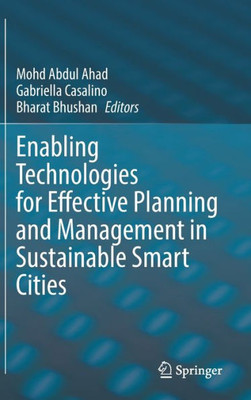With the rapid penetration of technology in varied application domains, the existing cities are getting connected more seamlessly. Cities becomes smart by inducing ICT in the classical city infrastructure for its management. According to McKenzie Report, about 68% of the world population will migrate towards urban settlements in near future. This migration is largely because of the improved Quality of Life (QoL) and livelihood in urban settlements. In the light of urbanization, climate change, democratic flaws, and rising urban welfare expenditures, smart cities have emerged as an important approach for societys future development. Smart cities have achieved enhanced QoL by giving smart information to people regarding healthcare, transportation, smart parking, smart traffic structure, smart home, smart agronomy, community security etc. Typically, in smart cities data is sensed by the sensor devices and provided to end users for further use. The sensitive data is transferred with the help of internet creating higher chances for the adversaries to breach the data. Considering the privacy and security as the area of prime focus, this book covers the most prominent security vulnerabilities associated with varied application areas like healthcare, manufacturing, transportation, education and agriculture etc. Furthermore, the massive amount of data being generated through ubiquitous sensors placed across the smart cities needs to be handled in an effective, efficient, secured and privacy preserved manner. Since a typical smart city ecosystem is data driven, it is imperative to manage this data in an optimal manner. Enabling technologies like Internet of Things (IoT), Natural Language Processing (NLP), Blockchain Technology, Deep Learning, Machine Learning, Computer vision, Big Data Analytics, Next Generation Networks and Software Defined Networks (SDN) provide exemplary benefits if they are integrated in the classical city ecosystem in an effective manner. The application of Artificial Intelligence (AI) is expanding across many domains in the smart city, such as infrastructure, transportation, environmental protection, power and energy, privacy and security, governance, data management, healthcare, and more. AI has the potential to improve human health, prosperity, and happiness by reducing our reliance on manual labor and accelerating our progress in the sciences and technologies. NLP is an extensive domain of AI and is used in collaboration with machine learning and deep learning algorithms for clinical informatics and data processing. In modern smart cities, blockchain provides a complete framework that controls the city operations and ensures that they are managed as effectively as possible. Besides having an impact on our daily lives, it also facilitates many areas of city management.
- | Author: Mohd Abdul Ahad, Gabriella Casalino, Bharat Bhushan
- | Publisher: Springer
- | Publication Date: Mar 02, 2023
- | Number of Pages: 416 pages
- | Language: English
- | Binding: Hardcover
- | ISBN-10: 3031229215
- | ISBN-13: 9783031229213






